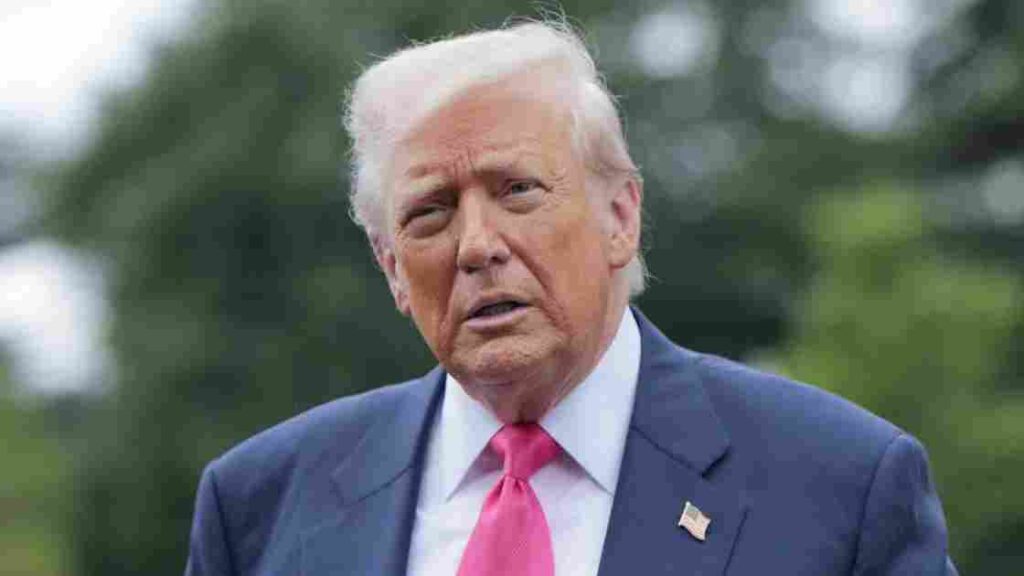Constitutional clash over spending powers reaches high court as administration withholds congressionally approved funds
WASHINGTON — In a significant victory for executive power, the Supreme Court ruled Friday that the Trump administration can proceed with withholding $4 billion in foreign aid funding that Congress had previously authorized.
The decision overturns a lower court ruling that would have required the administration to distribute the funds before the fiscal year ends on September 30. The Supreme Court’s intervention effectively allows the money to expire unused.
Unprecedented Pattern of Emergency Rulings

The ruling marks the 20th time this year that the Supreme Court has granted an emergency application from the Trump administration since the president’s second term began in January. Legal experts note both the volume and success rate of these emergency requests are without historical precedent, drawing criticism from across the legal community.
The court’s 6-3 conservative majority determined that the executive branch had demonstrated sufficient grounds under the Impoundment Control Act to prevent the nonprofit organizations from successfully challenging the funding freeze. The justices also concluded that potential diplomatic complications outweighed harm to aid recipients.
Sharp Dissent from Liberal Justices
Justice Elena Kagan authored a dissent on behalf of the court’s three liberal members, criticizing the majority for rushing to judgment on novel legal questions. She argued the court was operating in “uncharted territory” without proper deliberation.
“We therefore should have denied this application, allowed the lower courts to go forward, and ensured that the weighty question presented here receives the consideration it deserves,” Kagan wrote.
Constitutional Power Struggle
The dispute centers on a fundamental constitutional question: whether presidents can refuse to spend money that Congress has appropriated. The administration argues it can use a “rescission” process to notify lawmakers of its intent to withhold funds, even at the fiscal year’s end.
This “pocket rescission” strategy hasn’t been employed in nearly five decades and allows little time for Congressional response. Critics argue it undermines the legislative branch’s constitutional “power of the purse.”
The Impoundment Control Act, enacted in 1974 following President Nixon’s attempts to withhold spending on programs he opposed, was designed to prevent exactly this type of executive overreach.
Broader Policy Implications
The withheld funds represent part of the administration’s broader effort to reshape U.S. foreign aid policy. While freezing $4 billion in assistance, the administration plans to distribute another $6.5 billion in congressionally approved aid.
The Trump administration has also moved aggressively to restructure the U.S. Agency for International Development, the primary vehicle for distributing billions annually in global health, development, and humanitarian assistance.
Congressional Response
Democratic leaders immediately called on Congress to reassert its spending authority, though Republicans controlling both chambers are unlikely to challenge an administration they largely support.
“Republicans should join Democrats to stand up for our power of the purse,” said Senator Patty Murray (D-Wash.) and Representative Rosa DeLauro (D-Conn.) in a joint statement.
The timing adds complexity, as lawmakers are simultaneously working to prevent a government shutdown before the October 1 deadline for next year’s budget.
Legal Ramifications
Nicolas Sansome of the Public Citizen Litigation Group, representing the aid organizations, warned the decision “further erodes separation of powers principles that are fundamental to our constitutional order” while creating “grave humanitarian impact.”
The case originated when various groups led by the Global Health Council challenged the administration’s authority to withhold the congressionally approved funds. U.S. District Judge Amir Ali had initially ruled in their favor, requiring the money to be spent unless Congress formally withdrew it.
However, Solicitor General D. John Sauer argued that compliance would impose “unacceptable restrictions” on presidential authority over foreign policy and diplomatic relations.
The Supreme Court’s intervention ensures this constitutional question will likely resurface in future disputes over executive versus legislative spending powers.






